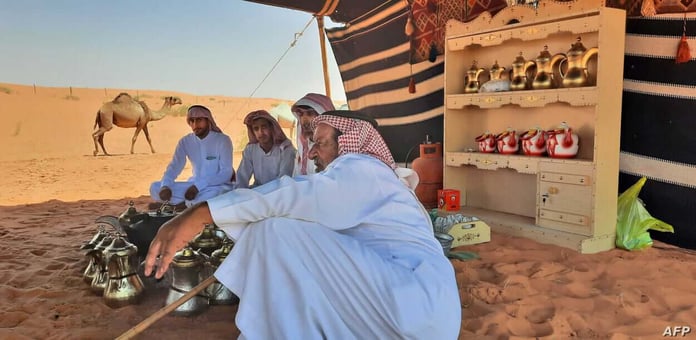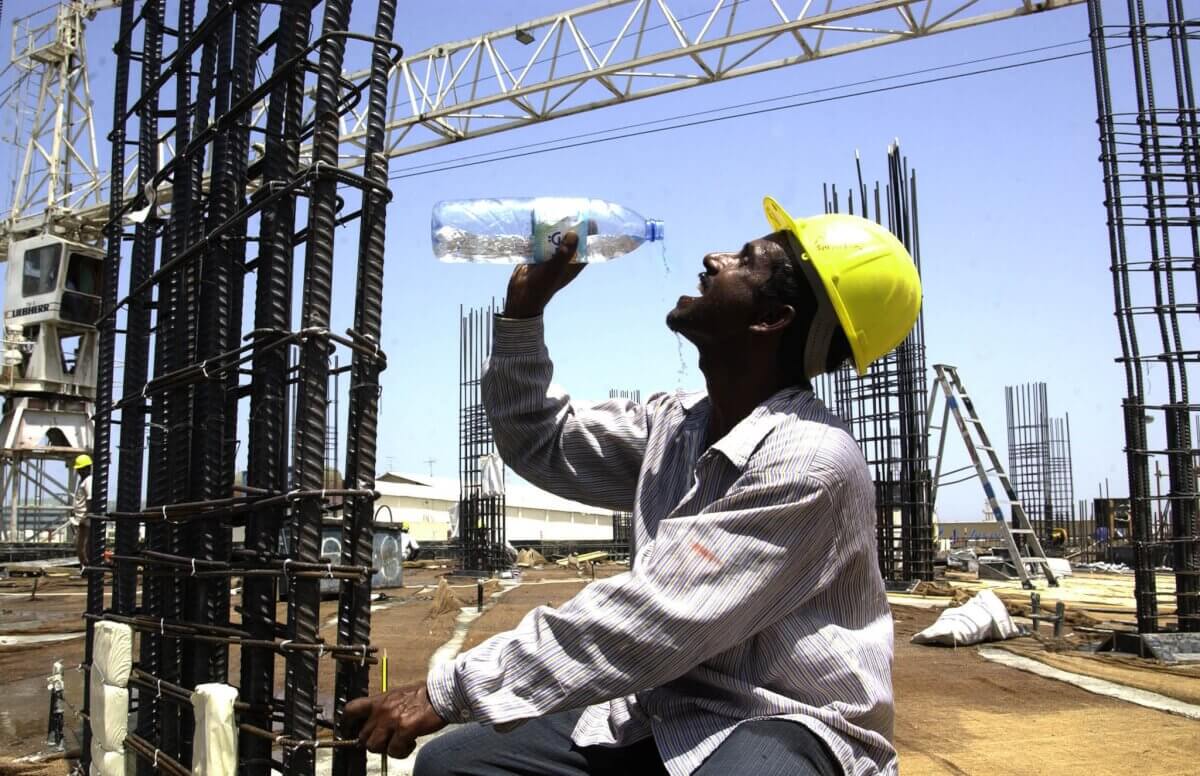
Samir rides his motorbike under the sun in Dubai, where temperatures in summer can reach 45 degrees Celsius. In the Gulf region known for its hot summers, global warming threatens to make life unbearable for humans.
“I work from nine in the morning until four in the afternoon in this heat,” says a Pakistani delivery worker who works with a delivery app in Dubai. “Sometimes (the company) or people give us water to drink, and we are entitled to a break every three hours.”.
Usually, citizens and residents of Dubai, during the summer when the heat increases with high humidity, move to other places around the world. While many who decide to stay during the summer rely on air conditioning and a battalion of delivery workers.
“In general, the level of heat stress will increase significantly” in many Gulf cities, Al-Fateh Al-Taher, a professor of hydrology and climate at the Massachusetts Institute of Technology, told AFP.

The researcher believes that at the end of the century, other places in the Gulf may witness “heat stress conditions that are incompatible with human survival.”
The UAE launched an energy strategy 2050 that aims to raise the contribution of clean energy from 25% to 50%, and reduce carbon emissions from the electricity production process by 70%.
For his part, Tanzid Alam, director of “Earth Matters” for an environmental consultancy, based in Dubai, believes that “there is more interest in the UAE in this issue, but we are waiting for the major companies to take the issue seriously.”
Alam hopes that the UN experts’ report will sound “alarm bells”.
Over the past years, the UAE has used aircraft dedicated to rain rain, and soon it may start using drones for the same purpose.
Heatwaves
A report issued by climate experts at the United Nations predicted that global warming will increase by 1.5 degrees Celsius compared to the pre-industrial era around 2030, which threatens the occurrence of new “unprecedented” catastrophes in the world.
According to Insider Alam, companies “do not always understand how they can deal with increased heat waves, storms, floods and other effects” of global warming.
Commenting on the climate experts’ report, United Nations Secretary-General Antonio Guterres said it was “a red alert for humanity. The alarm bells are deafening: greenhouse gas emissions from fossil fuels and deforestation are choking our planet.”
In recent years, Gulf governments have sought to change their discourse on the environment, as part of their efforts to diversify their economies. The Emirate of Abu Dhabi is building a solar power plant that it says will be one of the largest in the world.
Meanwhile, Saudi Arabia, the world’s largest exporter of crude oil, announced the launch of a number of reforms to diversify the economy. The Kingdom has announced a number of major environmental projects, with a focus also on solar energy.
Nine years ago, Mohamed Abdel-Al became very interested in the idea of renewable energy. And he founded a technology startup that “provides water tanks with cooling solutions during the hottest summer periods using only solar energy.”
Abdel-Aal confirms that his company, “Silent Force”, witnessed increased demand in Saudi Arabia and the UAE during the summer of 2021, which was very hot.
“We are preparing to be in all the GCC countries by 2022,” he says.
According to Abdel-Aal, “We have long and strong hours of sunrise to create and produce new environmentally friendly devices that rely solely on clean, sustainable and low-cost energy to help protect our environment, and ensure a better quality of life for us and the future of our children.”
In Kuwait, Khaled Jamal Al-Flaih decided to convert his entire house to run on solar energy, and is calling on the government to make “clear decisions” in the face of global warming.
“Today in Kuwait, we cannot go out until after six in the evening, and we have to use an air-conditioned car to go to an air-conditioned place,” he told AFP.
Al-Flayeh insists that it has become “impossible” to avoid the effects of climate change, adding that we are “at a critical stage and in need of awareness and a clear government decision.”













